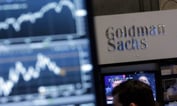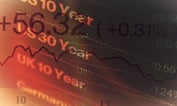 Robert Bloink and William H. Byrnes
Robert Bloink and William H. Byrnes
House Democrats introduced a bill in March that would impose a tax on certain types of financial transactions, including a 0.1% tax on various securities transactions, including sales of stocks, bonds and derivatives. While the bill would generally exempt initial securities issuances and short-term debt from the tax, most securities transactions and taxpayers who invest would be subject to the tax at some point.
We asked Professors Robert Bloink and William Byrnes, who write for ALM’s Tax Facts and hold opposing political views, to share their opinions about the viability of the financial transactions tax and the potential implications if this bill is passed.
Their Votes:
 Byrnes
Byrnes
 Bloink
Bloink
Their Reasons:
Below is a summary of the debate that ensued between the two professors:
Byrnes: This is just another crazy Democratic proposal to find yet another way to tax the rich, but, as with most of these proposals, it will actually end up hurting us all. This bill would do nothing but cause harm to investors and the economy as a whole, at a time when we’ve been working to strengthen the job markets while also providing protections for those who invest their hard-earned funds in the financial markets to help grow the economy and make America strong.
Bloink: This minuscule tax would generate an enormous amount of revenue that could be used to support the middle class and working Americans, and would largely be borne by very wealthy investors and banks that make risky and frequent trades in order to generate huge profits for themselves. We need to find some way to fund badly neglected infrastructure projects, reduce the deficit, fund health care research, the list goes on and on, and this tax would raise an estimated 777 billion dollars over 10 years—an amount that would go a long way toward making this country much stronger than it is today.
Byrnes: Professor Bloink is wrong on this one. This tax would negatively impact the everyday middle-class investor who is just trying to save for a home, retirement or maybe for their children’s college, imposing an extra tax that they don’t need or deserve and disincentivizing savings at a time when we need to be doing the opposite.








 April 17, 2019 at 03:39 PM
April 17, 2019 at 03:39 PM










